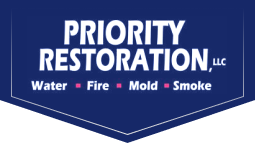Cooking is the leading cause of all fires inside the home — including those that go unreported. In fact, they account for nearly 48% of all fires inside the home, 45% of all fire injuries inside the home, and 21% of all fire deaths inside the home. These numbers generally peak during the holiday season.
While there are several different known causes of kitchen fires, one of the most dangerous is grease. They account for nearly 53% of all kitchen fires that result from cooking materials — as well as 64% of all civilian deaths, 78% of all civilian injuries, and 78% of all property damage.
Due to how common and dangerous these fires are, it’s very important that Philadelphia and Lower Merion homeowners practice safety-first when in the kitchen. It’s also important everyone in your household understands what a grease fire is, how they start, how to prevent them, and how to stop them when they happen.
How Do Grease Fires Start?
Grease fires are triggered when the cooking oil, fat, or grease overheats past its smoking point, which is when it starts losing its nutritional value and quickly catches on fire. This can happen in the matter of a second, which is why it’s important to keep an eye on your pan while cooking.
Once a grease fire starts, it won’t take much to spread — especially if you don’t know how to properly put one out. They’re not like most fires and require a specific technique that most people are unaware of. In fact, most people end up making the situation worse with their efforts.
Don’t worry, we’re here to set the record straight and help your family promote a safe home environment for everyone to enjoy. That’s why we’re going to take a look at some of the best ways to prevent a grease fire and how to stop them — the right way — once they start.
Preventing & Stopping a Grease Fire
As dangerous as grease fires are to you and your family, there is good news because there are a variety of things you can do to prevent them. Better yet, there are ways you can put that fire out before it has an opportunity to spread throughout your kitchen and rest of your home.
Let’s first take a look at some prevention tips:
- Never leave your station unattended when cooking
- Know what type of oil or fat you’re cooking with — and its smoking point
- Avoid grease splatter by carefully placing the food in the pan
- Always keep your kitchen clean, especially the oven and stove top
- Have a fire extinguisher nearby
Now, let’s take a look at what you should do when a grease fire starts:
- Turn off the heat immediately
- Cover the fire with a baking sheet to cut off oxygen
- Pour baking soda or salt onto the remaining flame
- DO NOT pour water, baking powder, flour, or anything else on the fire
- If not contained, use a Class B fire extinguisher as a last resort
When none of the above do the trick, safety is top priority. No matter how bad the fire damage, Philadelphia homeowners need to get everyone out of the house, call 911 immediately, and make sure you have the most experienced Philadelphia disaster restoration company by your side to ensure your home returns to its original state safely.
If you recently experienced fire damage, Philadelphia PA residents can rely on Priority Restoration to deliver the best fire and water damage restoration in Philadelphia. Contact us today to learn more about our services!









